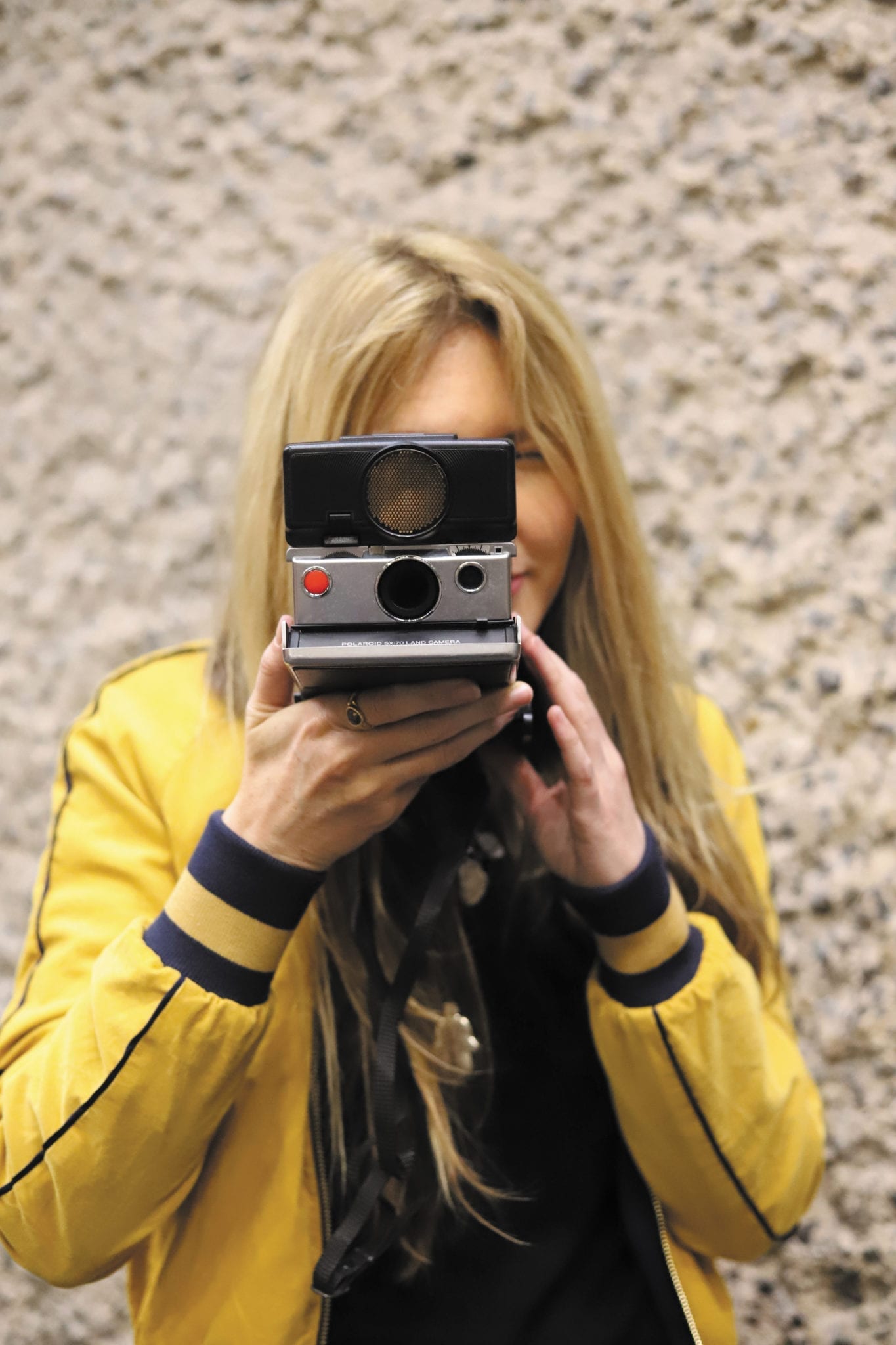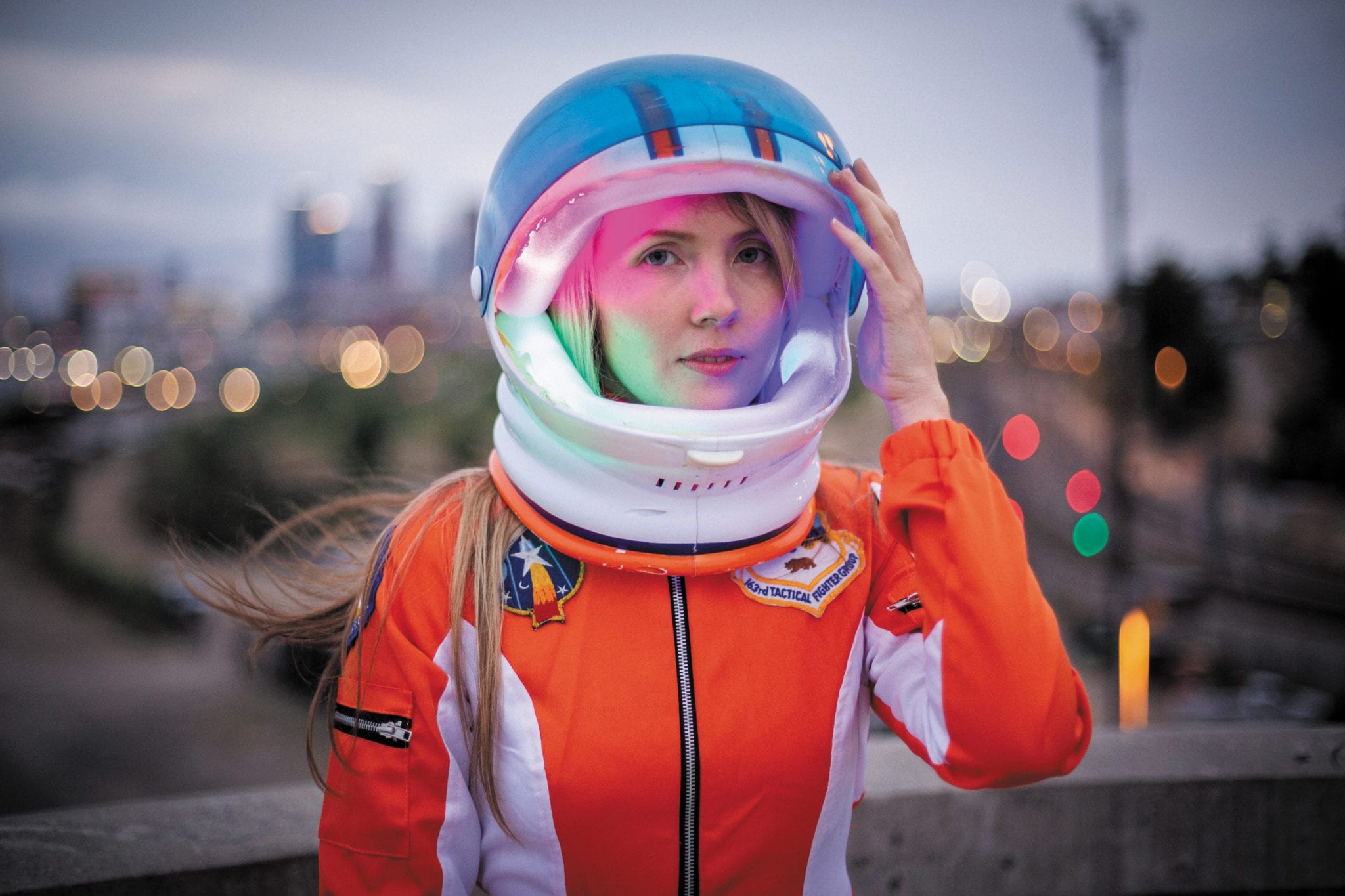
ARTOPSY: BEATIE WOLFE
By Investigating Agent Krysti Joméi
Published Issue 076, April 2020
REPORT OF INVESTIGATION BY EXAMINING AGENT: Krysti Joméi
SUBJECT: Beatie Wolfe
OCCUPATION: Creating new tangible formats for albums in the digital age.
BIRTHPLACE: London, United Kingdom
RESIDENCE: Los Angeles, California
TYPE OF ART: Tangible / Retro / Futuristic
MANNER OF ART: Existing somewhere in the intersection between music, art, technology, health, science
PROBABLE CAUSE OF ART: My guitar, my parents’ record collection, endless journals, viewmasters, coin-operated viewports, Horn Antennas, album jackets, spending too long in the world’s quietest room …
CASE FILE REFERENCE: https://beatiewolfe.com
Beatie Wolfe. A musical Jules Verne. An audio space shuttle commander. A sonic tailor. An energy ninja. A soundscape activist. A perpetual stream of consciousness. A visionary storyteller. A borderless, timeless deeply beautiful soul.
After interviewing and getting to know this trailblazing artist I thought I’d be able to write a succinct intro about who she is. I was wrong. There’s no simple or accurate way to represent London-born, Los-Angeles-based Beatie who has committed her life to exploration, innovation and activism in art and music by reuniting tangibility, storytelling and ceremony.
She’s transmitted an album into outer space, pioneered brand new musical formats including a palm-sized 3D viewfinder-esque theatre, created a wearable and listenable record jacket, and produced an “anti-stream” recording from the quietest room on earth. She’s served as a UN Role Model for Innovation, just spoke on TEDMED and founded a groundbreaking research project about the power of music for those living with dementia. Europe’s largest performing art centre Barbican commissioned a documentary about her — Orange Juice for the Ears: From Space Beams to Anti-Streams — and her most recent environmental protest project From Green To Red will be featured at London Design Biennale this fall.
Beatie is an unstoppable force with a mission to do as much as she can with the time she’s been given on our planet in hopes of providing humanity new ways to connect to art. Music is never just playing in the background for her. Art isn’t just something hanging on her walls. They’re the main focus, the path itself, and like the universe, can’t help but continue to forever expand.
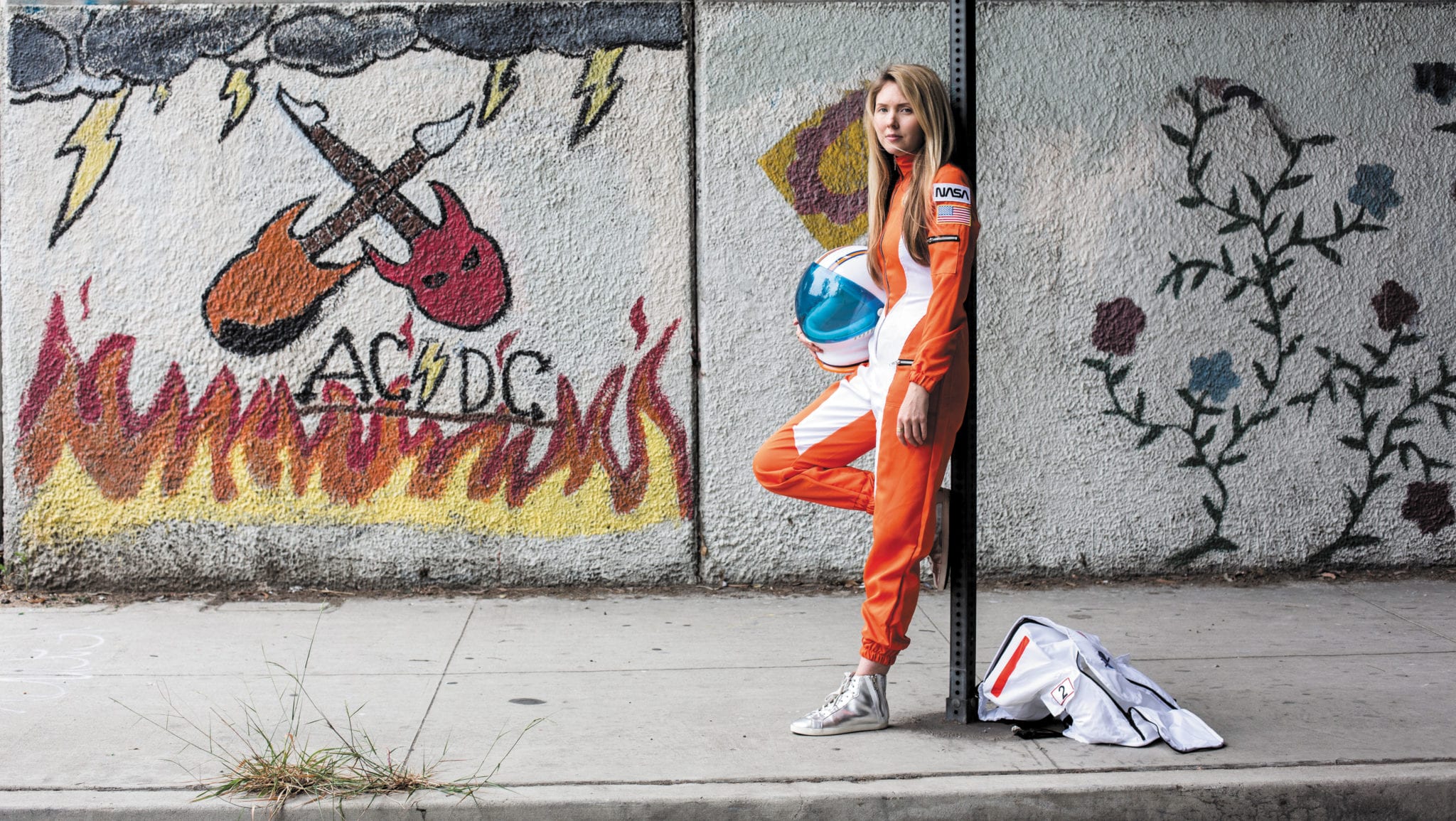
Photo by Ross Harris
What prompted your Barbican commissioned documentary film Orange Juice for the Ears?
The Barbican documentary came about because of a solo exhibition of my album designs at London’s Victoria and Albert Museum.
Where did the title come from?
“Orange Juice for the Ears” is taken from a line by neurologist Oliver Sacks about the power of music. His book Musicophilia inspired me six years ago to start the Power of Music & Dementia research project, so he really is a key influence for me.
Describe your first I’m-an-artist-I-know-I-have-something-to-say-and-something-to-do memory.
Well … that’s a funny one. I remember being a baby, lying in my cot and staring at the clock thinking, “When is time going to hurry up because I need to get on with stuff!” Yup … pretty weird, haha!
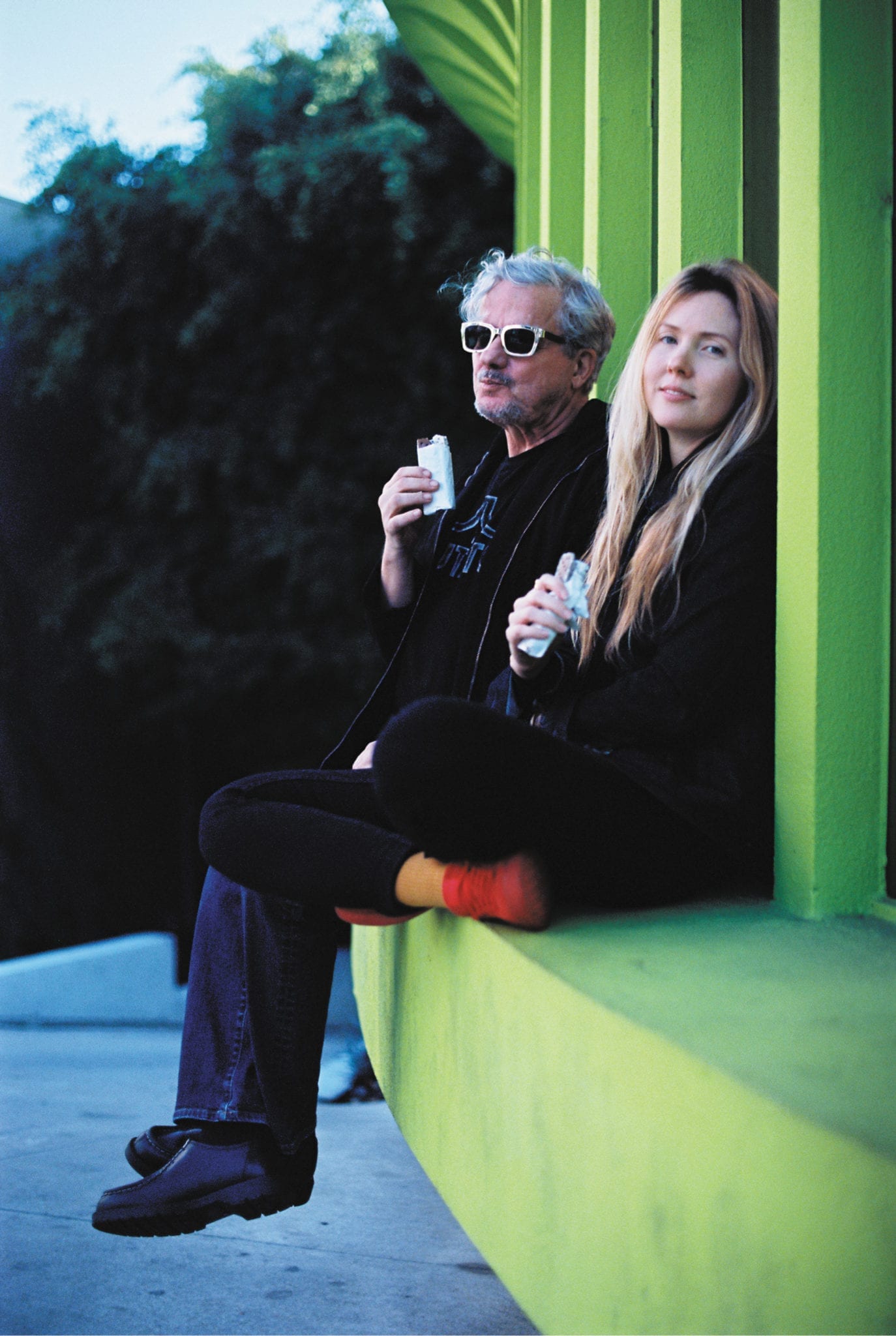
Photo by Ross Harris
When do you write/create? Where? What’s your process?
Anywhere and everywhere … there really isn’t one particular time, space, process. It happens often when I least expect it, just as the projects have all come as magnificent detours and not part of any “plan.” So for me it’s just about staying open and acting when inspiration strikes. One thing I do find though is that I often get my best ideas while walking. And with songs, a lot of them come all in one: words, melody and music.
You talk about never forcing a project, an album, a creation, but rather allowing ideas to organically flow to you. Sometimes, despite our best efforts, we get stuck in a creation block. How do you get past these walls?
I have a lot of trust that if it is right, it will unfold. While I have been very lucky to have these projects unfold in ways that seem to me so magical, there were of course speed bumps along the way and then I find it’s about staying true to the vision, the intention at whatever cost. And as with any block, I think it’s about looking at it from a different angle, finding a different way in.
What creation are you most proud of?
I’m proud of every creation but more importantly, perhaps, the body of work as a whole. I think for me it was never about one definitive idea but the exploration itself. Raw Space was particularly satisfying because it was the most realized version of the vision I had opening up records as a kid and entering into the world of the album, this kind of fantasia experience, and then of course getting to beam my record into space with Nobel Laureate Robert Wilson via the Horn Antenna that captured the sound at the birth of our universe and proved the validity of the Big Bang. So Raw Space was the most fascinating journey.
Most prolific challenge/setback that ended up benefiting you and spawning growth?
Coming up against other peoples’ or companies’ agendas that would steer a project off course. Because it was so paramount to me that each project was realized in harmony with the intention (which informs everything) and that nothing was being done for the sake of it, I realised that sometimes you have to be unpopular for the greater good and that no one can oversee your vision like you.
Greatest influence(s) on your style, voice, practice?
Nature, Jim Henson, Hafiz, Oliver Sacks, Hedy Lamarr, William Blake, Dr. Sylvia Earle, David Bowie, Leonard Cohen, Elliott Smith, my family, my dear friend Allee Willis, humanity … All those who wish to leave the world a little better.
You are an outspoken champion of science — exploring and incorporating the history of the universe and its ever-expansion into your music and work, with your most recent focus on our climate crisis with your environmental protest piece From Green To Red. You also carry space rocks and your mother’s Tibetan talisman in your pockets and express how you have memories before birth and inside the womb. Describe your dance between science and spirituality in a socially heated climate that says it’s one or the other.
I think we can get very lost as human beings when we start dividing things up, putting things in boxes, imposing parameters that don’t exist. The human way of understanding this planet, and beyond, is so limited so I try not to limit anything. I think, like a bee, it’s about taking wisdom, inspiration from all places if it resonates with you. And I have only my own experience to draw from so that has informed a lot of what I believe to be true.
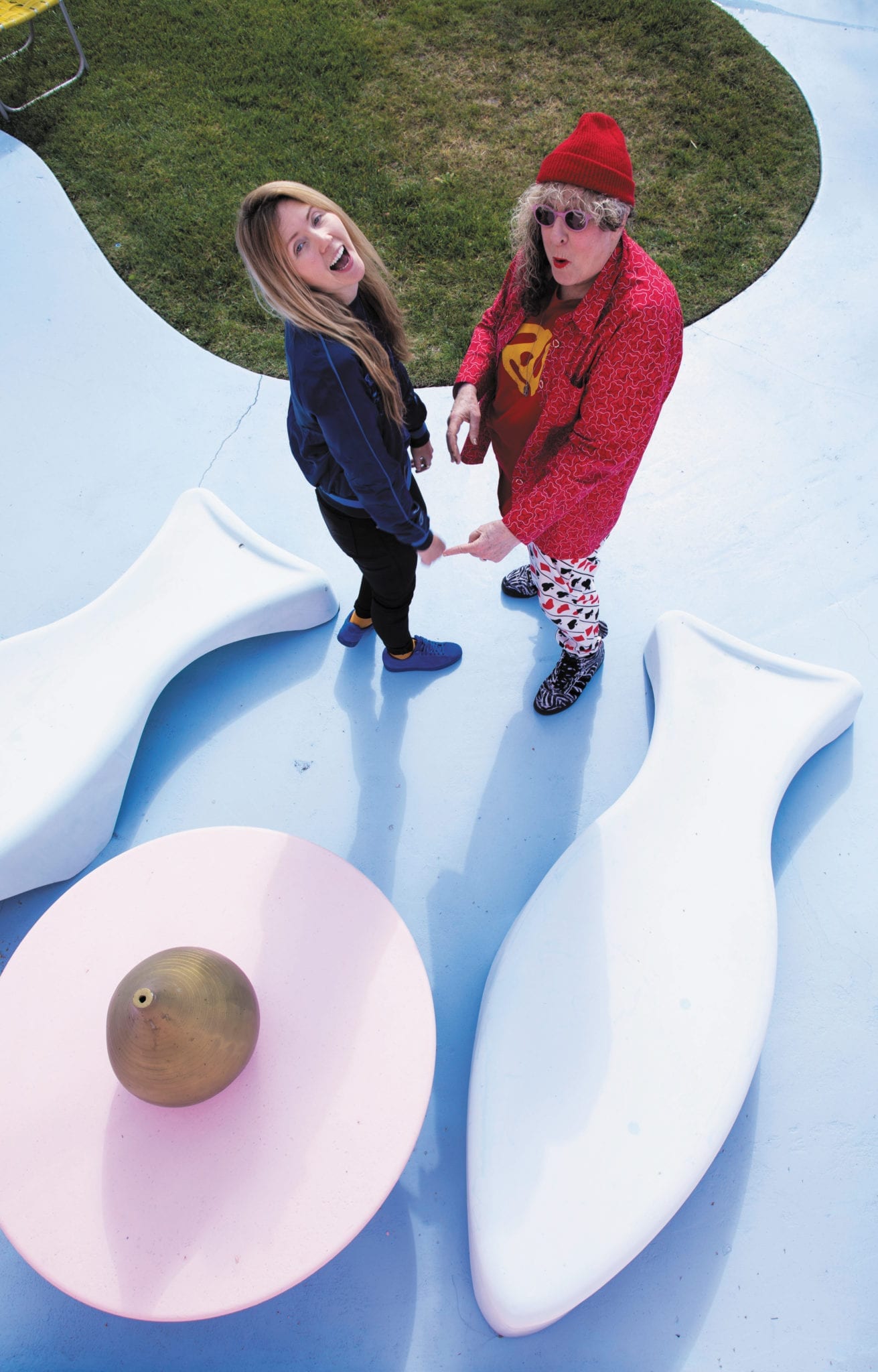
Photo by Ross Harris
Being a full-time artist is everything but easy. What do you do in low times to pull yourself out?
I write, hike, spend time with people I find uplifting and generally reconnect with experiences that make me present and keep me alive inside … from watching the birds to listening to a piece of music.
How has your work evolved since you first started creating?
It has expanded to encompass many more fields and encircle many more worlds than I could have ever imagined.
Tell us about your ground-breaking study the Power of Music & Dementia.
After personal experiences playing to family members with dementia and seeing the incredible reactions which moved me so deeply, I began the Power of Music & Dementia research project in 2014, with the intention of looking at the power of music and how deep it really goes. This was the first time music, unconnected to memory, had been tested in a study for people living with dementia and Alzheimer’s (which made it groundbreaking) and the results were just incredible. Both memory and communication were improved during the duration of the project and I was lucky enough to see the most profound reactions to music I have ever seen. Reactions that imprinted on me forever. I watched David transform from a catatonic-like state to dancing, and Ann, who had not spoken a word in months, halfway through the performance break out into song. And there were so many more. This study was then picked up by the world’s top research institutions and recently turned into a charity working to get music in all care homes in the UK.
In your film, you talk about growing up and how you knew you were something different than what you appeared to be; you never resonated with the physical form of the body you were wearing. Describe your true form.
A being of consciousness just like everyone of us.
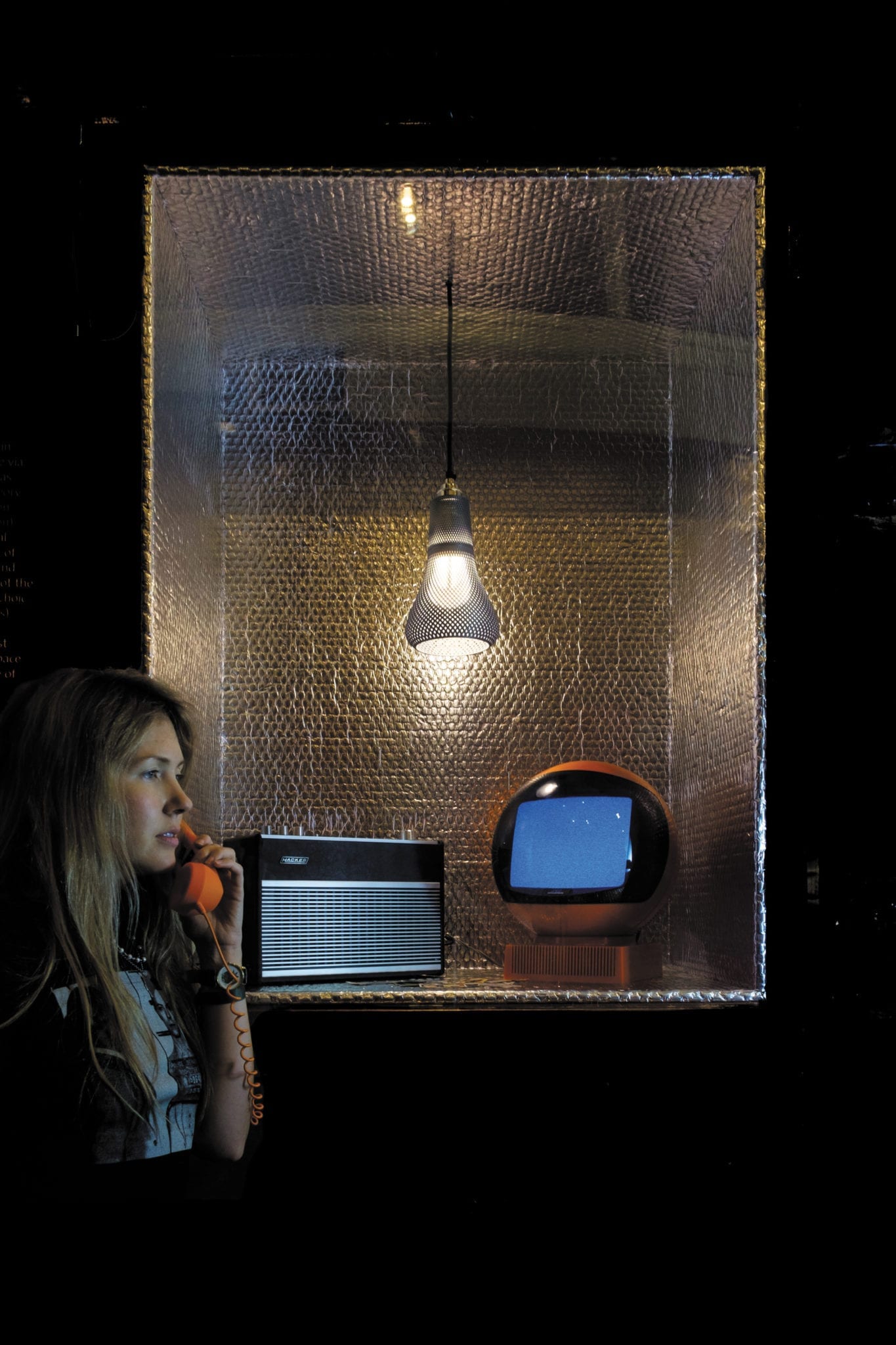
Photo by Dexter Robinson
Your fascination with sound and silence led to the creation of Raw Space “an anti-stream for our current streaming generation” where you partnered with Nokia Bell Labs and recorded an immersive experience in their Anti-echo Chamber, the quietest place on earth, before beaming your third album into space via the historic Holmdel Horn Antenna. This experience unveiled how therapeutic silence is to you on a cellular level. How do you disconnect from noise (physical, emotional, mental, etc,) on a day-to-day basis?
Well I’m very lucky in that I get to choose my environment most of the time so in this way I get a lot of silence and stillness generally in my day-to-day life. The main noise I have to rebalance is my mental noise as my brain is both one of my greatest tools and one of my greatest enemies, simultaneously. I have very sensitive sensory inputs and a very active, analytical mind which is what often allows me to come up with the ideas in the first place, and realise them, but this can also turn into exhausting mental whirring or OCD tendencies when I’m not actively immersed in a project. So I try to meditate as much as possible, get out into nature, listen to music that is my “orange juice for the ears” and find ways to balance that interplay between what actually matters and what are just machinations of the mind.
Who or what do you hope hear Raw Space? Do you think you’ll ever receive music back?
Anything and everything! It was about putting something out into the universe that was reflecting our humanity at a time of all this airbrushing and AI and autotune, coming from the quietest space on earth with no EQ, reverb, audio enhancements as the rawest sound. It’s funny because just last week I got a message from someone about making a discovery in an asymmetrical microwave presence/transmission and picking up some messages related to our broadcast. I have no idea the validity of this claim but it is wonderful to imagine!
What superpower would you choose?
The ability to turn apathy into empathy.
You have a black belt. What’s your ultimate ninja scenario?
Oh wow! Well there are a lot of scenes from classic ninja films that I’ve tried (and failed!) to recreate! But I’d have to say one of the most badass ninja scenes is in Naruto (Sseason 1) when Zabuza takes Gatō out on the bridge using just a knife in his teeth as both of his arms are out.
If you could tell little Beatie one thing before she embarked upon her creative journey, what would you say?
It will be better than you could have ever imagined.
Why art? What’s the point of creating?
Why not? Isn’t that why we’re here … I believe that art (like nature) directly connects us with our humanity and our divinity.
What are you trying to convey/achieve with your work?
My work is directly about creating new tangible formats (or ways of seeing/experiencing music) that can imprint in this age of the intangible. And the bigger picture is about conveying the value of art (in the broadest sense) as something core to our humanity, our identity, our wellbeing. At a time of more access than ever music cannot simply float around as part of the background noise along with everything else that lives there. So it’s about reminding people of the magic of music and how they can still experience this today.
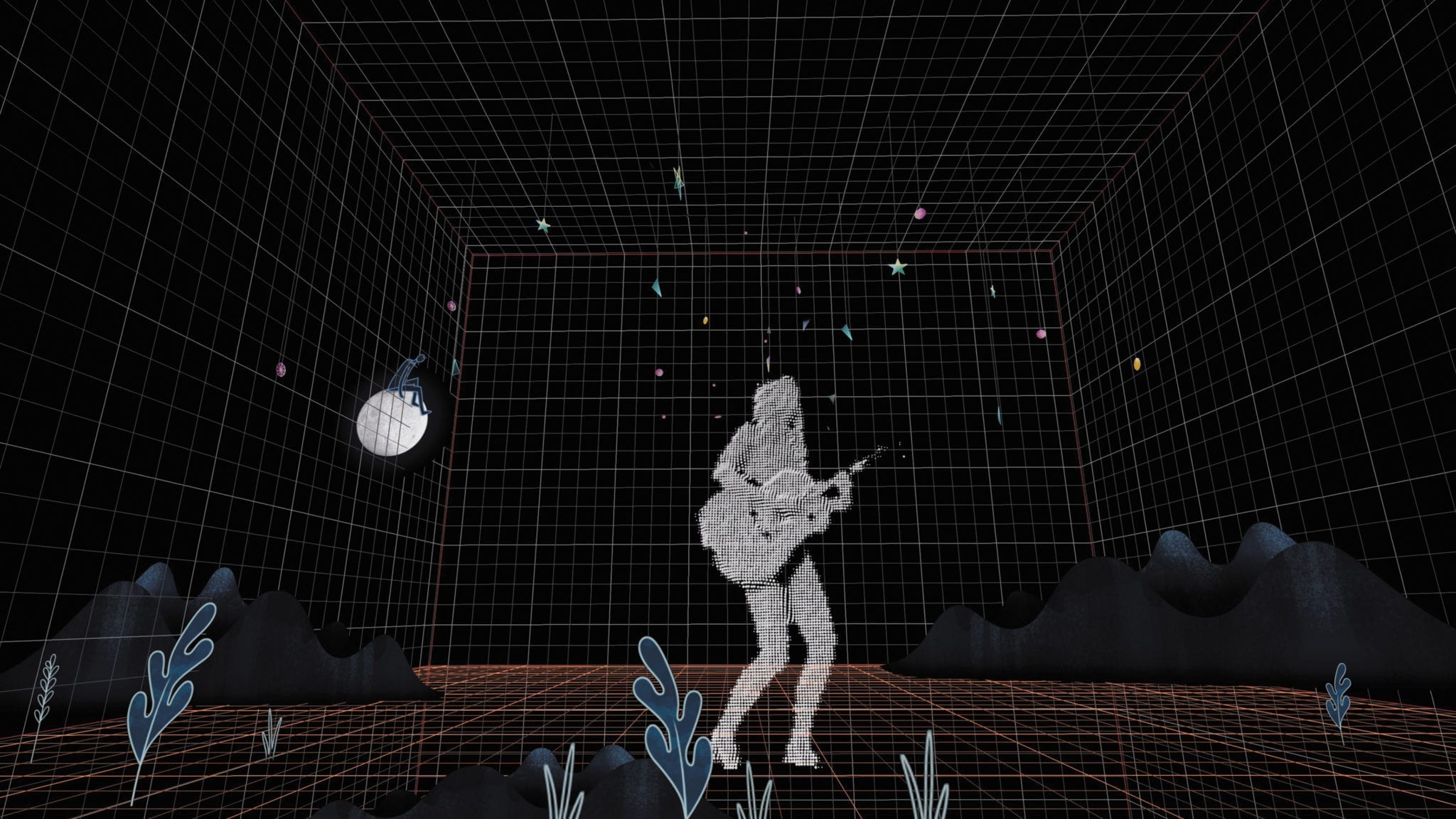
Photo by Theo Watson
What’s next for you?
My current project From Green to Red is an environmental protest piece built using 800,000 years of NASA’s historic data to create a stirring visualization of the CO2 concentration in the earth’s atmosphere that is simultaneously a protest song, a timeline of the planet and a reimagining of the music video format. From Green to Red uses the power of art and music to re-present data in a way that people can relate to. The reception so far has been incredible and it’s only the beginning. Although a number of the festivals From Green to Red was invited to this spring/summer have been cancelled or postponed in light of the current times, it looks like the first public installation will be at the London Design Biennale which runs throughout September in Somerset House.
What’s your hope for humanity?
That we remember to celebrate those experiences that keep us alive inside; that remind us of why we’re here in the first place.
Anything I miss?
I think it’s really important to remember right now that there is a fine balance between what needs to be preserved and what needs to be innovated.
